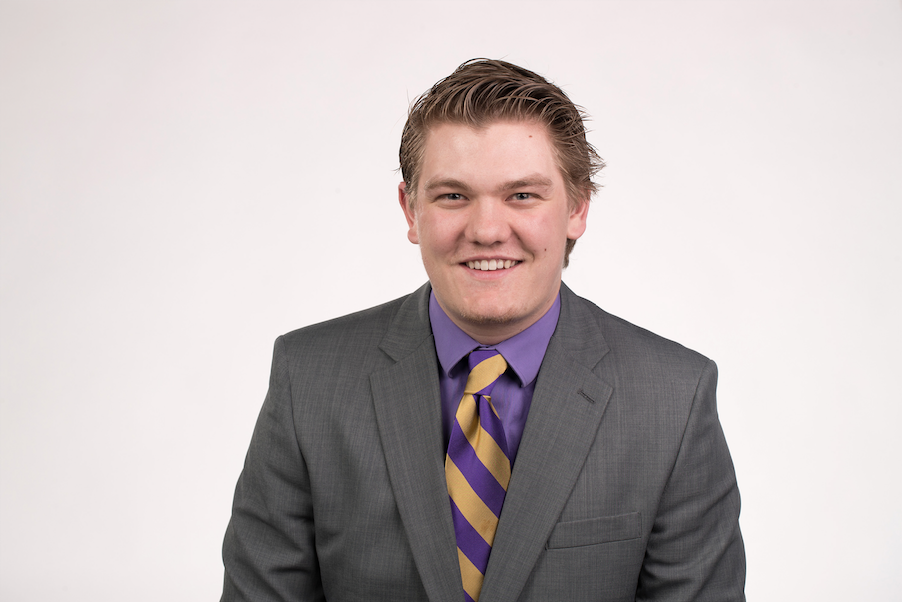Internships provide experience, often lead to jobs

Mason Czaikowski grew up in Stevens Point and wants to stay
in the community. Going to the local university made sense economically and
gave him a learning experience at a local business.
“I grew up here. I like the community. I really want a
career here. The university was a great fit. I was conscious of spending money,
and I could live at home,” he said. “I love to fish and hunt, and UW-Stevens
Point made that accessible.”
A business administration major with a finance, insurance,
real estate (FIRE) concentration, Czaikowski is now a senior. He began
interning at Skyward, a growing educational software firm, in March 2017. He
continues to intern there while completing his degree, learning both in class
and on the job as a customer support financial consultant.
Skyward has a robust internship
program, averaging more than 30 interns a year of UW-Stevens Point students in
various departments.
“Our expanding internship program
is our single most impactful recruiting tool for finding qualified candidates
and building a pipeline for our continued growth year over year,” said Ray
Ackerlund, chief marketing officer at Skyward. “We currently have 39
interns working here and more than 90 full-time employees who started out as
interns.”
Skyward is one of more than 50 employers in the central
Wisconsin region that provide real-world experience to students through
internships, said Ricardo Boeing, assistant professor of business and
internship director for the School of Business and
Economics at UW-Stevens Point. Nearly two-thirds of those completing
internships ultimately receive job offers from these employers, he said.
Boeing works with employers to identify internship
opportunities, matching students with meaningful real-world experiences to
enhance their learning. “It’s very important for our students and very
rewarding for them -- and the employer.”
The greatest number of students have internships in the
summer. In business fields, they intern at banks, accounting firms, insurance
companies, nonprofit organizations, restaurants, manufacturing and others. Many
students intern for course credit, and their grade is based in part on an
evaluation from their internship supervisor. That feedback is helpful to
students honing skills to succeed in any career path, Boeing said.
Feedback is also helpful to Boeing and business faculty in
terms of enhancing courses with information students need for various careers.
Based on employer input, for example, he is building knowledge of graphic
design into a marketing class.
The concentrations of marketing, management and finance are
targeted to be become majors at UW-Stevens Point later this year.
Internships
are just one way business students become engaged in career options while pursuing
coursework. During “Kickstart your Career” programming, students have
opportunities to network with area employers. They hear from business leaders, learn
resume writing, interviewing and even dining etiquette tips. It is part of a
series of optional events they can attend throughout the academic year, many of
which provide course credit. SBE
Events includes speakers, workshops and field trips to introduce
School of Business and Economics students to career paths.
The School of Business and Economics, which is accreditedby the Association to Advance Collegiate Schools of Business (AACSB),
has been acknowledged for effective student engagement because of programs such
as these, noted Gary Mullins, professor and chair.
Coursework and SBE Events at UW-Stevens Point have helped Czaikowski
prepare for the future, professionally and personally. From communication and
leadership skills to business management and organization, classroom learning
and hands-on experience at Skyward have helped Czaikowski set goals and chase
dreams, he said.
When he graduates in May, one dream will be realized: Czaikowski
will begin working full-time at Skyward.
